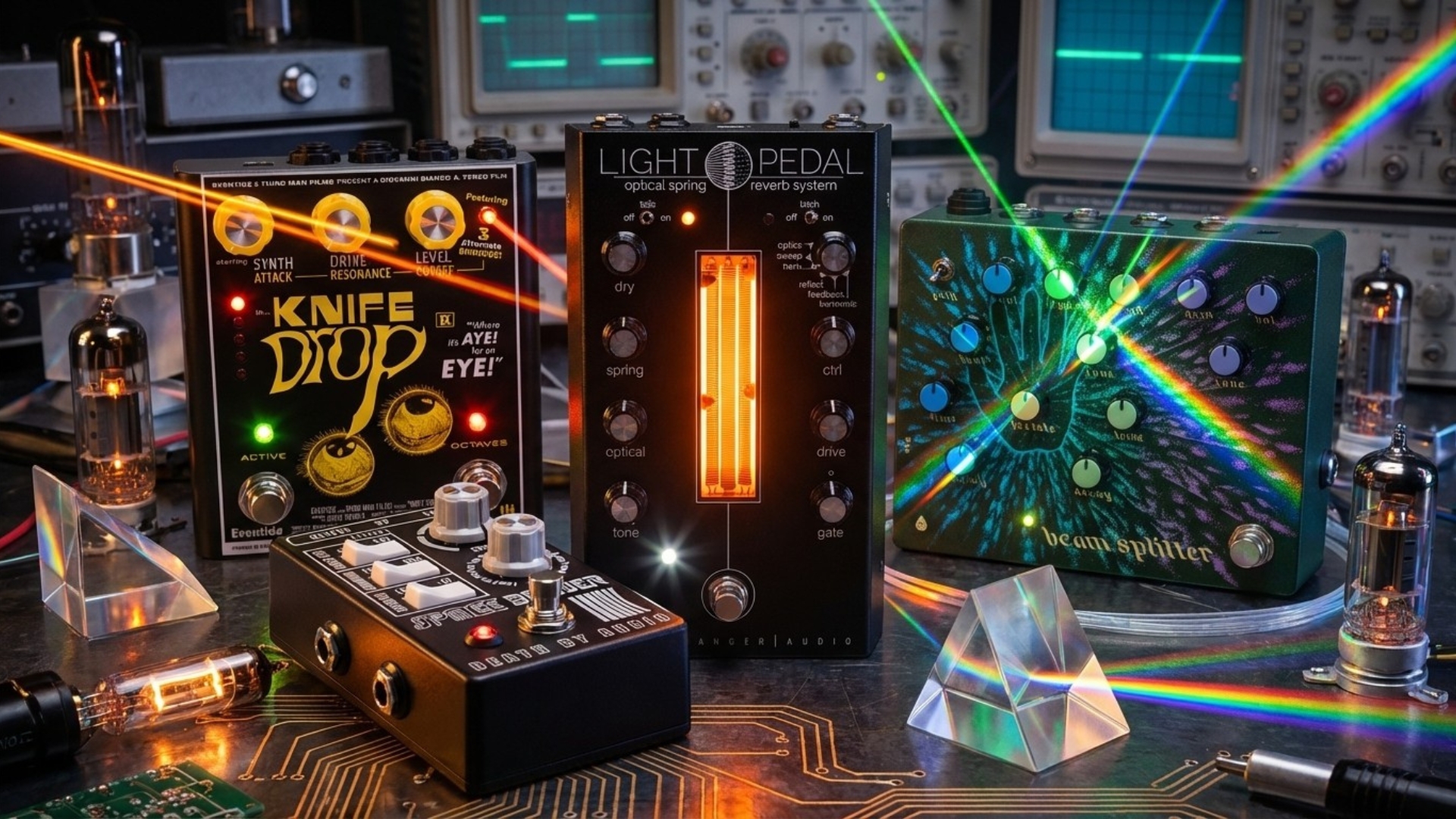Interview: Guitarist Phil Collen Looks Back on 33 Years of Def Leppard

Three decades into a remarkably successful career, guitarist Phil Collen looks at each day as a new beginning.
Best known for his work with rock band Def Leppard, Collen is also involved with a gritty blues-rock trio, Manraze, where he is joined by Paul Cook and Simon Laffy.
Their latest EP, I Surrender, was released late last year. His newest project is a blues duo, Delta Deep, with vocalist Debbi Blackwell-Cook. They’re at work on an album. He is also writing his autobiography.
Last year, Def Leppard released the live CD/DVD package Viva! Hysteria, which captures their Las Vegas residency, where they performed the classic Hysteria album in its entirety. The band played a stretch of concerts for fans who traveled from all points to see them — a fact Collen doesn’t take lightly.
In this interview, Collen looks back and faces forward regarding life as a member of Def Leppard, and what’s made it possible for the band to survive both personal and professional challenges.
GUITAR WORLD: Thirty-three years. Where did they go?
It’s weird, I know. It’s still ongoing. If I were looking back at something, I think it would make me feel old, but the fact that it’s ongoing and I have serious work to do, and of course promoting Manraze, there’s a lot going on.
All the latest guitar news, interviews, lessons, reviews, deals and more, direct to your inbox!
Do you go back mentally and emotionally when you play those classic Def Leppard songs?
Interestingly enough, I don’t, but when we did the Viva! Hysteria thing, that’s exactly what happened. When we were rehearsing the songs, I’d remember all these crazy guitar parts that Mutt Lange would have me do. He’s say, “Try this,” and I’d say, “That doesn’t exist.”
He’d say, “Tune this guitar and let’s get this harmonic and counter-rhythm and this rhythm,” so I’m listening and re-learning this stuff and all these memories came flooding back. Even on stage, we did 11 shows and it was exactly what you said. I remembered being in the parking lot of the studio, the actual studio, the control room, where my guitars were, all the gear. It was very much time transportation.
Two-part question. First, like any relationship, how do you keep things interesting and challenging when you know each other so well?
Like any relationship, you have ups and downs. We’ve had all these crazy experiences, but one thing that keeps us very much grounded is that we’ve had all of these experiences together. We’ve had amazing highs and brutal lows, like a family, but the difference is we’ve been together longer than most families exist — someone leaves home at 18, the parents split up — we’ve been here for 33 years and we’re still trucking on, so that makes a big difference.
And the fact that we can relate to each other. You eventually fall out or disagree, but you have all this experience to keep you grounded and bound together. Plus, when you have new ideas, everyone’s really excited about this recording and what they want to bring to the table. It’s been a while since we did an original album. We did three songs on the Mirror Ball thing, but I think this will be different. It’s going to be an exciting Def Leppard record or EP. Whatever it’s going to be, it’s going to be really cool.
Have you chosen a producer?
We’re going to start with Ronan McHugh, who does all our other stuff. We may get someone. If we can find someone interesting enough, then we’ll definitely do that for a few songs. We have a concept already, I certainly do, of what the stuff should sound like, so I don’t want a producer coming in and putting their two cents in yet. We’ll select a few songs and have a producer come in to do that.
Second part: How do you keep going when you face some of the most difficult obstacles?
If you took anyone’s private family life, anyone in or out of the band, it’s actually worse than what we’ve been through as a band, so that’s how we view it. It’s like any family. People die, people get awful diseases, divorces, tragic and traumatic things. So we never view it as that. It just is what it is, really.
Over the years, you’ve watched the industry change: downloads, ringtones, social networking, crumbling labels, stolen music. Can you envision getting a band off the ground now?
Yeah, but on a different level. You don’t have the interruption, you don’t have A&R guys or record labels. It’s a very creative period if you want it to be. I’ve heard younger guys and musicians coming out, there’s this band in Ireland called The Strypes, they’re 15 or 16 years old, and they kind of sound like a cross between early Stones, Pretty Things and the Kinks, and so they’ve got this retro thing. I think it’s different from that point of view.
You don’t have these massive labels jumping on people too much anymore, they play it very safe, but I do think you can be very creative and expressive. I hear that a lot. It depends on what you want to do. If you want to be rich and famous, it’s probably not going to happen. If you want to express yourself and share it, then the world is your oyster, you can do anything you want. So on one hand you’ve got this golden age of creativity because you can make your own records, but you’re not going to get as much play out of it. If you want to be famous, which a lot of people want to be, it’s a bit tougher.
Is there a guitar album in your future?
Yeah, probably, I think so, because I’ve been recording some instrumental stuff, just guitar, so I think maybe somewhere. More like soundtrack stuff, very heavy to jazz fusion to metal, all in one. Probably after next year I’ll start working on it. You know what, I’ve already started working on it. I’ve got three songs that I’ve recorded.
Read more of Phil Collen’s interview here.
— Alison Richter
Alison Richter interviews artists, producers, engineers and other music industry professionals for print and online publications. Read more of her interviews right here.
Alison Richter is a seasoned journalist who interviews musicians, producers, engineers, and other industry professionals, and covers mental health issues for GuitarWorld.com. Writing credits include a wide range of publications, including GuitarWorld.com, MusicRadar.com, Bass Player, TNAG Connoisseur, Reverb, Music Industry News, Acoustic, Drummer, Guitar.com, Gearphoria, She Shreds, Guitar Girl, and Collectible Guitar.
